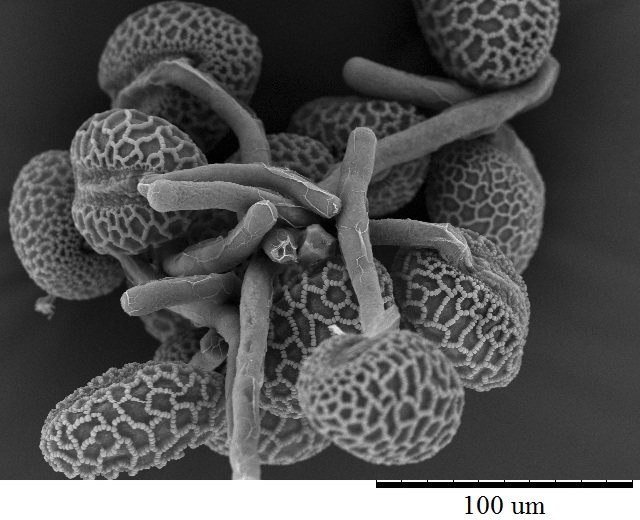#43  by Teuton » Apr 11, 2014 2:13 am
by Teuton » Apr 11, 2014 2:13 am
"Electric Signaling: Ever since the discovery of electrical responses to stimulation in plants, obscure ideas about plants’ neurology were brought up (e.g., Tomkins and Bird 1973). This was always strongly provocative when one considers neurology as the study of nerve systems inferring foresight, intention, and consciousness to be restricted to the realm of cognitive behavior of (higher) animals. Astonishingly using such terminology plant neurobiology quite recently even comes up as a new move in plant biology (e.g., Trewavas 2003, 2005 ; Baluska et al. 2004, 2005; Brenner et al. 2006; Gurovich and Hermosilla 2009, with a rebuttal by Alpi et al. 2007). All kinds of interactions and communications involving plant cells are called “synapses” (Baluska et al. 2005). However, plants do not have neurons as specialized cells transmitting nerve impulses.
Reference is made to Charles and Francis Darwin. They discovered and in controversy with the dominating German plant physiologist Julius von Sachs, they rightly maintained that the kalyptra of the root tip is the site of perception of the gravitational stimulus eliciting gravitropical bending of roots (Darwin 1880, 1909). It is now known that electrical signaling is involved. The so-called geo-electric effect first described by Brauner and Bünning (1930) was confirmed by Stenz and Weisenseel (1991 , 1993). An electrical field is built up in the root under gravitational stimulation and the root is bending towards the lower physical side which is more positive. Very detailed studies by the group of Andreas Sievers (e.g., Behrens et al. 1985) then unraveled the interaction of cushions of endoplasmatic reticulum with the amyloplasts serving as statoliths in the cells of the kalyptra. This generates an asymmetric distribution of membrane potentials and a polarization forming electrical fields and eliciting electrical signals followed by gravitropical bending. While it is evident that perception and primary signaling reside in the kalyptra, it is much too far reaching to conclude that the root tip functions like a brain (Baluska et al. 2004) and to appeal to Charles Darwin for support of such a postulation. Charles Darwin tended to compare roots and also moving plant tendrils with earthworms having tiny brains in their tips. However, evidently the Darwins were not aware of the current progress in genuine neurobiology. Therefore it is not fair to quote them as authorities for plant neurobiology. Electrical phenomena are a basic and general property of all living proteo-lipid biomembranes. Clearly membrane-electrical properties evolved earlier than the organs of a nervous system (Volkov 2000). However, the crevasse between the functions of electrical signaling in plants and bona fide neuronal activities in (higher) animals is so deep that it is misleading to draw analogies (Alpi et al. 2007). Electrical signaling per se is not neurology. On the other hand, by no means whatsoever this permits defending the error of taking plants as merely modular organisms with denying them the quality of being unitary individuals (Haukioja 1991). Rejecting the term “plant neurobiology” does not at all distract from the fascination inherent in much work that is currently performed on electrical signaling in plants and its importance for integrated whole-plant functioning."
(Lüttge, Ulrich. "Whole-Plant Physiology: Synergistic Emergence Rather Than Modularity." In Progress in Botany 74, edited by Ulrich Lüttge, Wolfram Beyschlag, Dennis Francis, and John Cushman, 165-190. Berlin: Springer, 2013. p. 170)
"Perception does not exhaust our contact with reality; we can think too." – Timothy Williamson





 [/aside]
[/aside]